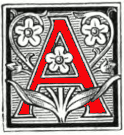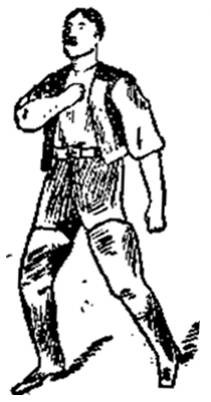This article has been transcribed from a copy of the Cardiff Times in the online collection of scanned Welsh newspapers 1804-1919 in the National Library of Wales, with grateful recognition of the free access accorded to all readers. Paragraph breaks have been introduced for easier reading.
Explanatory Notes
Mr Toole: John Lawrence (J. L.) Toole (1830–1906) English comic actor, actor-manager and theatrical producer.
Mr Beerbohm Tree: (later) Sir Herbert Beerbohm Tree (1852–1917) English actor and from 1887 manager of the Haymarket Theatre.
Buxton, Compton, Mathews, and Bedford: Buxton: not identified; Edward Compton (1854–1918) actor and actor-manager who toured the provinces with plays by Shakespeare, Sheridan and Goldsmith; Charles Mathews (1776–1835) English theatre manager and comic actor, well known during his time for his gift of impersonation; Paul John Bedford (1792?–1871), English comedian, who made his first appearance in Swansea.
Irvingesque: in the style of the great actor Sir Henry Irving (1838-1905). —— David Skilton

lmost as peculiar a set of beings as those they ape are Amateur Thespians. They burn to emulate the glories of their professional idols and pose, on every available opportunity, before a patient and long suffering public of more or less appreciative friends. Charity covers a multitude of bad acting, as well as a multitude of sins. One is apt at times to wonder why charity has been made responsible for so much mental misery as is suffered by the patrons of amateur theatricals.
The desire to act is almost a disease, and attacks people very young — usually from 16 to 22 – and once it gets a firm hold it is not easily eradicated. All attempts to allay the fever but increase it.
You may tell the fever-stricken amateur that the stage is over-crowded, and that he will have no chance against the hundreds of trained and experienced actors at present in the profession. All to no purpose. He will at once inform you that Mr Toole[i] was an amateur, that Mr Beerbohm Tree[ii] came from an amateur club, and that the amateur arena is the renewing ground of the theatrical profession; and he will be more firmly impressed than ever that he is destined to shine as a star by the force of your opposition, which he puts down to envy.

Comedy.
Those who undertake the weighty responsibility of managing an amateur dramatic club are fully aware that amateur actors are invariably blessed with a high opinion of their own abilities, and most of them wouId undertake to play Hamlet at a week's notice, or would have a shy at Macbeth in an equally limited time. There is no modesty about your full-blown amateur actor — with few exceptions – and he is blessed with a confidence which many a statesman of repute would love to possess.
The male amateur is usually a person of decided opinions as to his line of 'business,' and generally has a yearning to either comedy or tragedy. If his fancy runs in the direction of the former, he sighs to appear in parts made famous by such talented comedians as Buxton, Compton, Mathews, and Bedford. That these artists were men of genius does not bother him. He is convinced that parts they made are exactly suited to his capacity, and has no doubt in his own mind that he will shine to the full in the character he decides to play.

Burlesque.
The tragic actor is a fearful and wonderful young man, and affects the Irvinesque style, both as regards his personal appearance and his method of playing a part. He is a very melancholy young man, and rolls his eyes and his R's with equal success — or failure. His idea of elocutionary art is that he must make as much noise as he possibly can, and shout whenever he gets the opportunity. His favourite pose is that well-known 'folded arms' position.
The ladies go in principally for sentiment, and they gush to no small extent. To their credit, it must be allowed that they frequently join amateur clubs 'for the fun of the thing,' and make no pretence of doing things they are not able to do. Amateur theatricals are to them a means of pleasure, and, provided that the young men are given to flirtation, and they are enabled to wear pretty frocks, they [are] generally convinced that amateur theatricals are 'rather decent.' They are quicker at study than their male rivals, and they more rapidly master not only the words of the part, but the 'business' of it.

Heroics.
If, however, by any chance they begin to 'fancy themselves,' they are terrible to manage, and are only equalled in their perverseness by the petted leading lady of a popular burlesque company. She objects to this; she won't do that; and her dresses and properties, unless she provides them herself, are certain not to please her.
The great error committed by Amateur Thespians is the selecting of plays which are beyond their capabilities to perform. They are invariably ambitious, and want to pose in big plays and big parts.
Nothing less than a four-act play has any chance with an Amateur Club, and the result is that disaster follows where success would arise were the efforts of those interested less ambitious.
Acting is a difficult and complex art, and takes those who devote their lives to it years of patient labour to master. How then can an amateur who plays, perhaps, once or twice a year hope to reach anything like perfection.

'Old men.'
I would not do away with amateur acting; for I believe that it is an interesting and — properly carried out — an instructive form of recreation. But I would do away with careless and absurd performances which do no credit to anyone concerned, and are the cause of sneering on the part of those assembled to witness them. If anyone goes to a theatre and does not get value for his money, he very properly considers that he has been swindled. But the amateurs never seem to imagine that they are swindling people when they induce them to pay extortionate prices for a very mediocre entertainment. But the fact remains that they are. Let all amateurs strive to take the utmost pains, and, in vulgar parlance, 'creep before they walk.' A small part respectably played is more satisfactory to both audience and player than a big part badly played.
Do not imagine that because you have lured your friends to the entertainment under the guise of charity that you are at liberty to give them a bad performance, but strive to make them feel that, in spite of the charity, they have been given full value for their money.
Links to Related Material
- Samuel on Music-Hall “Artistes”
- Samuel on Playgoing and Playgoers
- Samuel on Playgoers
- Samuel on the Drama of Legs
Last modified 20 April 2022